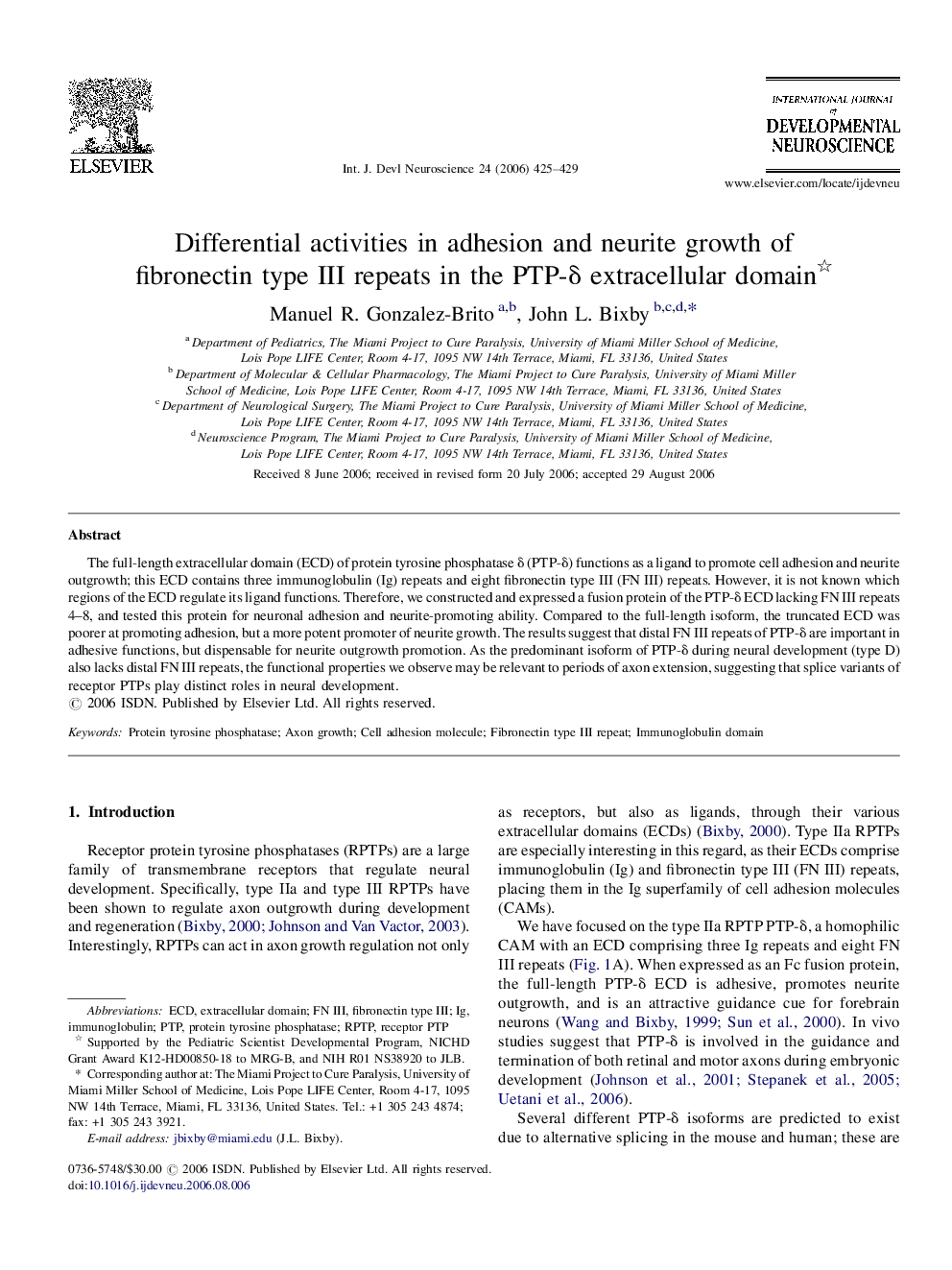| Article ID | Journal | Published Year | Pages | File Type |
|---|---|---|---|---|
| 2786919 | International Journal of Developmental Neuroscience | 2006 | 5 Pages |
The full-length extracellular domain (ECD) of protein tyrosine phosphatase δ (PTP-δ) functions as a ligand to promote cell adhesion and neurite outgrowth; this ECD contains three immunoglobulin (Ig) repeats and eight fibronectin type III (FN III) repeats. However, it is not known which regions of the ECD regulate its ligand functions. Therefore, we constructed and expressed a fusion protein of the PTP-δ ECD lacking FN III repeats 4–8, and tested this protein for neuronal adhesion and neurite-promoting ability. Compared to the full-length isoform, the truncated ECD was poorer at promoting adhesion, but a more potent promoter of neurite growth. The results suggest that distal FN III repeats of PTP-δ are important in adhesive functions, but dispensable for neurite outgrowth promotion. As the predominant isoform of PTP-δ during neural development (type D) also lacks distal FN III repeats, the functional properties we observe may be relevant to periods of axon extension, suggesting that splice variants of receptor PTPs play distinct roles in neural development.
